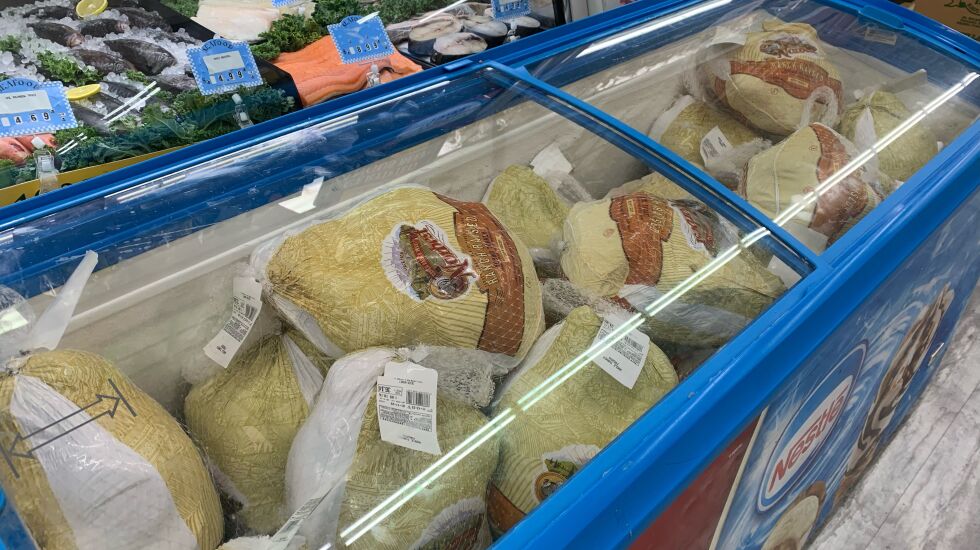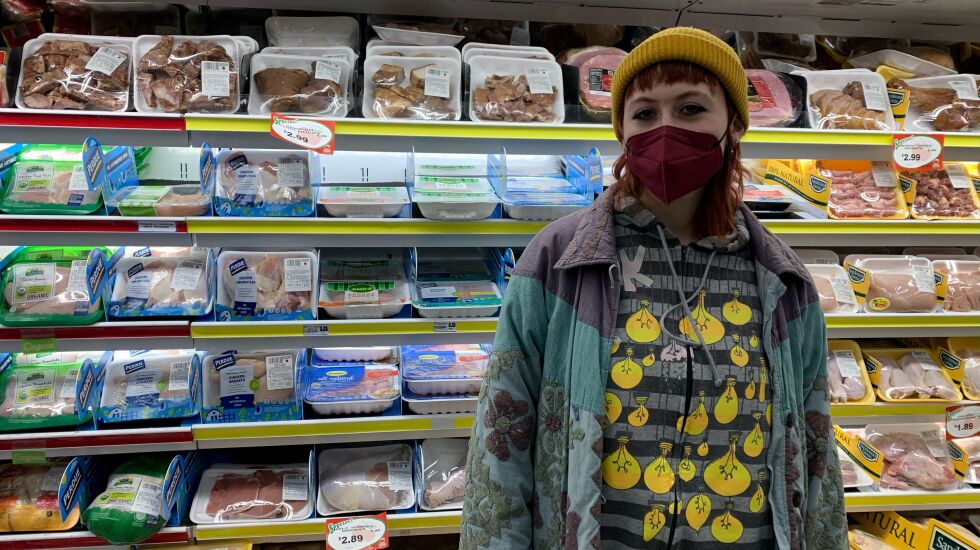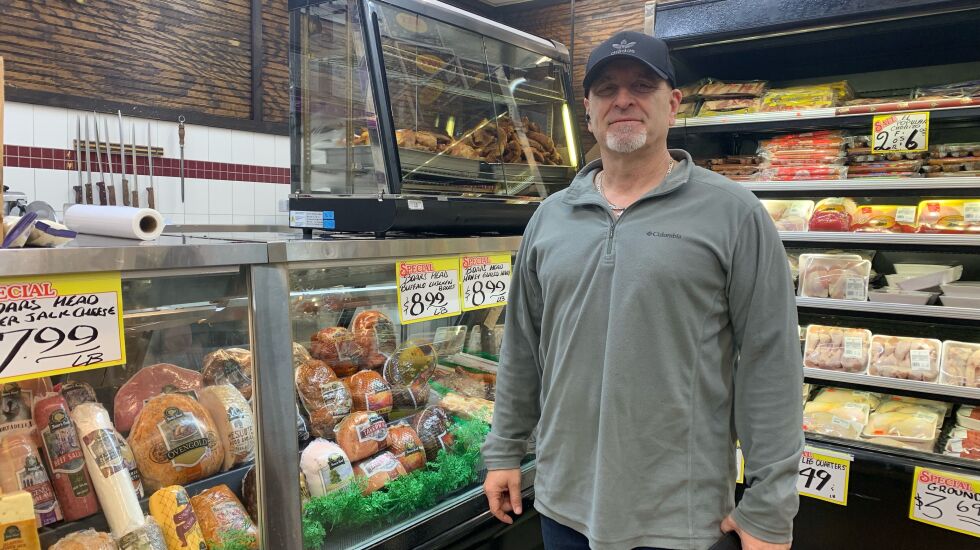
Shoppers are finding smaller turkeys and higher prices in stores ahead of the Thanksgiving holiday.
Turkeys are running 32 cents a pound more this year after avian flu culled flocks in the spring. The outbreak also means that some turkeys showing up at stores are younger and smaller.
The U.S. Department of Agriculture reports turkey prices are averaging $1.55 a pound, compared with $1.23 a pound last year.
Lily Allan, a Loyola University Chicago student who plans to celebrate Thanksgiving with friends, said she might have to do without turkey this year.
“I’m a student, and I probably won’t be able to afford it if it’s super expensive,” Allan said Monday.
Allan said that over the last few months she’s seen the rise in poultry prices at her local supermarket, causing her to eat significantly less chicken than she used to.
“I have stopped buying so much meat just because it is expensive, and most of the time I can do without,” Allan said. “If I am buying meat, it’s usually deli meat.”
More than 50 million U.S. aquatic birds, commercial poultry and backyard flocks were infected with the avian flu this year, according to the Centers for Disease Control and Prevention.
Tasha Bunting, associate director of commodity and livestock programs for the Illinois Farm Bureau, said the avian flu outbreak means 3% fewer turkeys will be on sale compared to last year.
Bunting said shoppers hoping to get big turkeys may have to instead buy two or have an alternative meat with their turkey.

The USDA attributes part of the price increase to inflation of farming products used to raise and sell turkeys. Bunting agrees.
“Right now, we have really high feed costs, really high fuel costs and transportation costs,” Bunting said. “So there’s a lot of things that are impacting the price that consumers would be paying at the grocery store.”
Kayla Kauffman, whose family runs Ho-Ka Turkey Farms in Waterman, about two hours west of Chicago, said the thousands of turkeys the farm sends to Chicago this time of year were about 30 cents more expensive per pound than last season.
“The biggest thing we’re struggling with is transportation, finding drivers to get our product out to people. And we’ve had to raise our prices to accommodate for increased gas and bird feed prices,” Kauffman said.
“Thankfully, avian flu didn’t affect us because we started raising our birds after the geese that spread the disease had already migrated south for the season,” she said.
The owner of Edgewater Produce, Pete Dallas, said he’s had to look for turkey from sellers he wouldn’t typically buy from.
“We’ve been struggling to fill from other vendors, but they’re not as good quality,” Dallas said.
Dallas said one of the big companies he buys from usually puts turkeys on sale each week, but it hasn’t done so in over two months.

Contributing: Mitch Dudek






